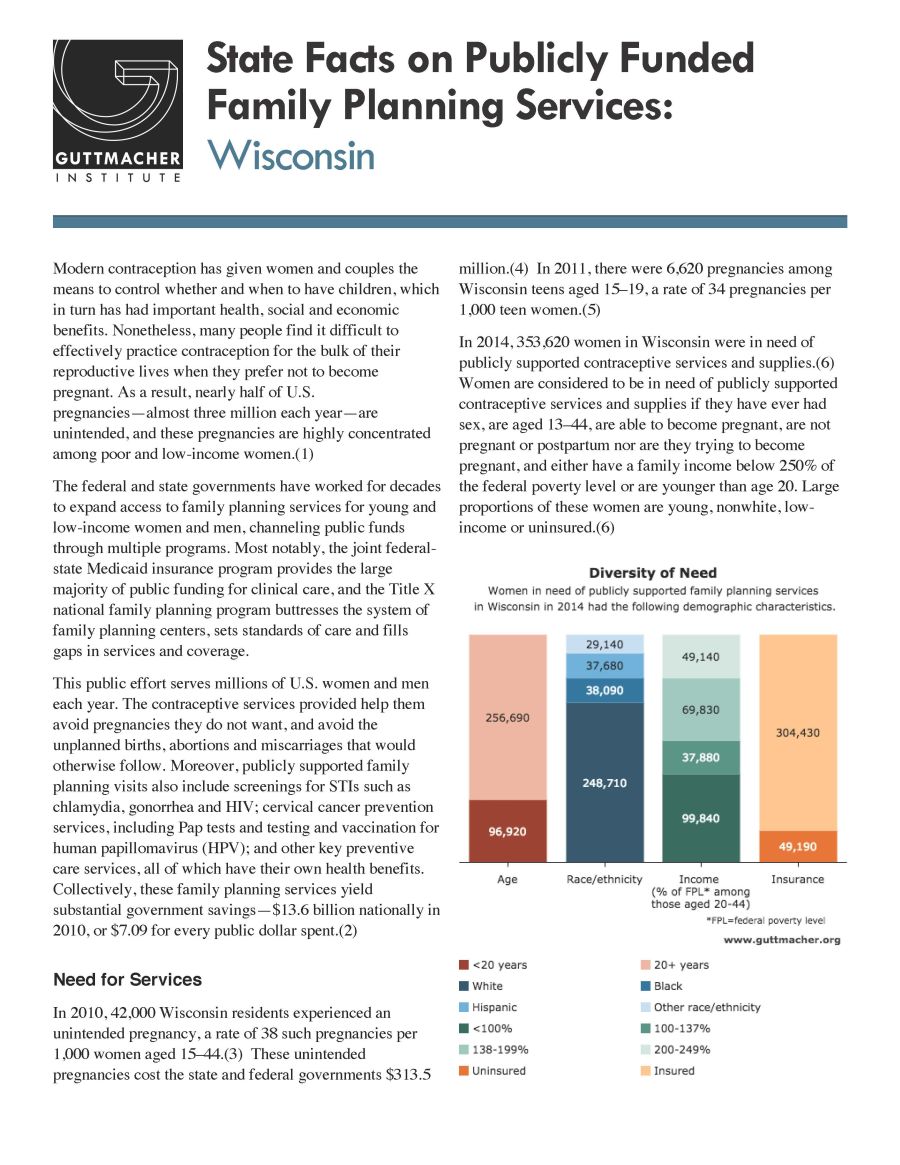Modern contraception has given women and couples the means to control whether and when to have children, which in turn has had important health, social and economic benefits. Nonetheless, many people find it difficult to effectively practice contraception for the bulk of their reproductive lives when they prefer not to become pregnant. As a result, nearly half of U.S. pregnancies—almost three million each year—are unintended, and these pregnancies are highly concentrated among poor and low-income women.
| File | Action |
|---|
| State_Facts_on_Publicly_Funded_Family_Planning_Services.pdf | Download |

